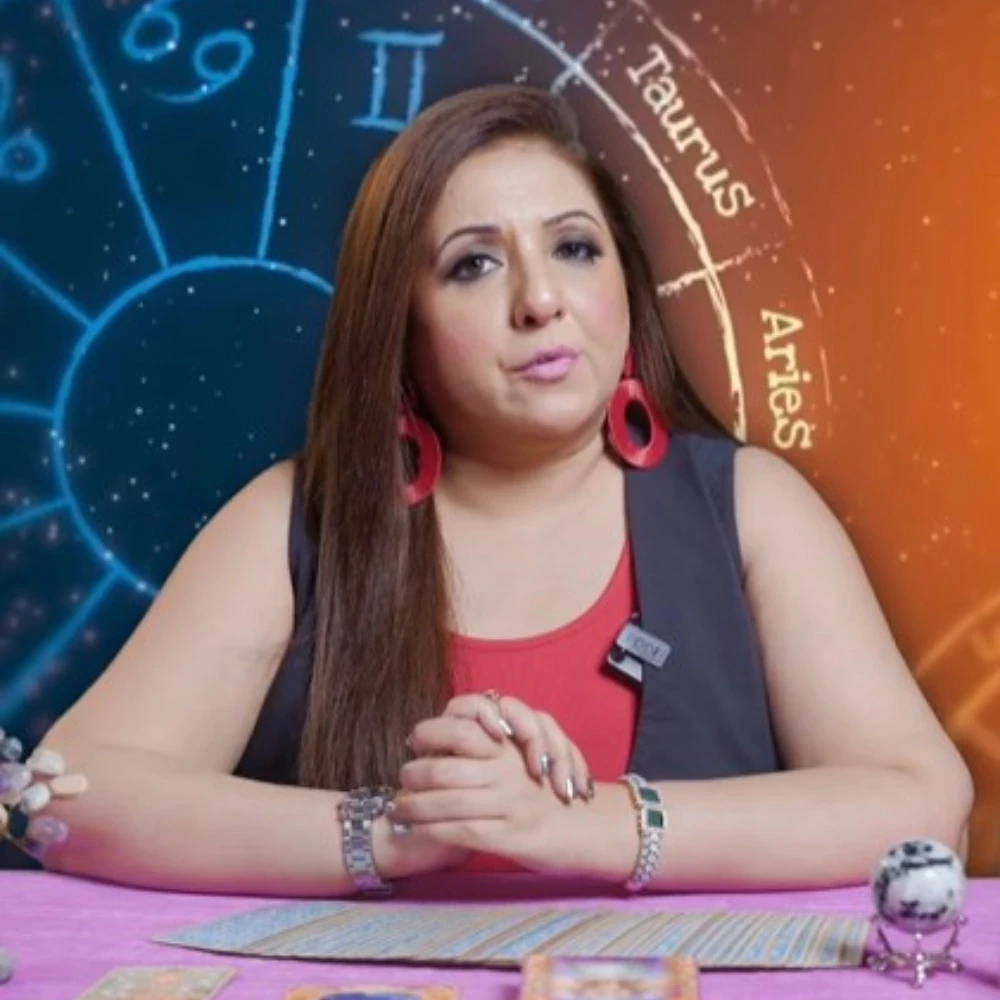Understanding the Concept of Leading Someone on: Meaning, Signs, And More
Understand the ethics and impact of leading someone on. Discover the consequences and considerations of stringing someone along in relationships or situations.

Trust acts as a delicate string in the complex world of human relations, and the idea of leading someone on works along with it. This voyage digs into the maze of emotions, exposing the possible influence of guiding someone on affection and the mind. Experiencing false hope or receiving seemingly distant promises can offer insight into the world of enchanting someone.
This exploration is not about dwelling in regret but rather an invitation to understand, learn, and grow. Through the emotions that often lead us down this path, we seek to uncover the reasons behind our actions and uncover empathy that can heal wounds we inadvertently inflict. So, whether you've felt regret, remorse, or the need to repair a broken trust, hop on with us on this journey. By the end, you will grasp the concept of captivating someone, identify its signs, and find tools to navigate these treacherous waters with kindness, awareness, and authenticity.
What Is Leading Someone on? Unraveling the Complexity

At its core, "leading someone on" means creating a false impression or giving someone the belief that there is a potential for a deeper, more meaningful relationship or connection than one genuinely intends. This can occur in various contexts, but it's most commonly associated with relationships.
Leading on meaning in a relationship involves giving another person the impression that you are romantically or emotionally interested in them, even though you may not genuinely feel that way. This can encompass a range of behaviors, such as flirting, making promises, or showing affection, all while knowing that you don't see a future with that person.
Essentially, it's like extending a guiding hand, beguiling someone to believe that there's a path ahead filled with mutual feelings and possibilities when in reality, you're aware that the approach may not be as promising as it seems. This can be unintentional, driven by a desire to avoid hurting the other person's feelings, or a reluctance to be upfront about your emotions. However, it can also be a deliberate act of manipulation, where someone knowingly takes advantage of another's affections for personal gain or ego boost.
Leading on someone can have profound emotional consequences. A person invests their time, energy, and emotions into the connection, only to later discover that the feelings were not reciprocated. This can result in heartbreak, confusion, and a significant breach of trust. In essence, leading someone is a breach of the mutual understanding that relationships, whether romantic or platonic, are built on genuine feelings, open communication, and respect for each other's emotions.
Why Do People Lead Others on? Insights into Human Behavior

The intricate web of human behavior often leads us down paths that might not always align with our best intentions. When enchanting others, several underlying reasons explain why people engage in this complex behavior.
1. Avoidance of Confrontation

One common reason for leading people on is the avoidance of confrontation. People might find it uncomfortable or challenging to express their lack of interest or intentions directly. Instead of facing potentially difficult conversations, they give false hopes to spare themselves from awkward moments.
2. Ego Boost

Enchanting can sometimes provide a temporary ego boost. Knowing that someone is interested in you can be flattering and satisfying. This validation, even if not sincere, can momentarily boost self-esteem or confidence.
3. Desire for Attention

Some individuals lead others on because they crave attention. By engaging in behaviors that suggest interest, they receive more attention and validation from the person they're leading on. This attention can feel gratifying, even if not founded on genuine feelings.
4. Insecurity And Fear of Loneliness

People who struggle with their insecurities or fear of loneliness might lead others on as a way to alleviate those feelings. Maintaining a connection, even if it's not authentic, can temporarily fill a void and provide a sense of companionship.
5. Uncertain Feelings

In some cases, people might genuinely have mixed or uncertain feelings. They might be unsure about their emotions and intentions, making them send conflicting signals to the other person.
6. Desire to Be Liked

Leading them on might stem from a fear of disappointing or upsetting them. This desire to be perceived favorably can drive people to act contrary to their true intentions.
7. Temporary Distraction

Some people lead someone on to distract themselves from their problems or challenges. Focusing on someone else's interests can provide a temporary escape from personal issues.
8. Lack of Awareness

In some instances, people might not even realize that they are captivating someone. They might underestimate the impact of their actions or fail to recognize the depth of the other person's feelings.
Signs That Suggest You Are Leading Someone on

Navigating the realm of human interactions can sometimes lead to unintentional misunderstandings. If you wonder, "Am I leading him on?" or "Am I leading her on?" or question whether your actions could be misinterpreted, it's essential to recognize the signs that might suggest you are inadvertently sending mixed signals.
1. Mixed Messages

If your words and actions don't align, it can create confusion. You might say one thing but imply another through your behavior. This discrepancy can make the other person question your intentions.
2. Excessive Flirting

While playful banter is a normal part of interactions, excessive or overly intimate flirting can give the impression of romantic interest, even if you don't intend it that way.
3. Personal Sharing

Sharing personal stories or opening up about emotions can create a sense of intimacy. However, if this sharing isn't reciprocated or doesn't lead to a deeper connection, it might be misinterpreted.
4. Future Plans

Discussing plans together, like trips or events, can give the impression of commitment. If these plans are made without the intention to follow through, it could lead to false expectations.
5. Regular Communication

Consistently reaching out and maintaining communication patterns might indicate a level of interest that isn't genuine. This can build expectations that you may not be able to fulfill.
6. Physical Touch

Physical gestures like hugging, holding hands, or cuddling can convey closeness. Engaging in these actions without clarifying your intentions might lead people to believe there's more to the relationship than you intend.
7. Avoiding Clear Conversations

If you intentionally avoid discussing your true feelings or the nature of the relationship, it can leave the other person uncertain.
8. Accepting Gifts Or Favors

If you accept gifts or favors without clearly addressing your intentions, the giver might interpret this as a sign of interest.
9. Comparing Them to Others

Making comparisons to other people or relationships might imply a more profound connection, even if that's not your intention.
10. Jealousy Or Possessiveness

Expressing jealousy or possessiveness can indicate a level of attachment that you might not feel.
It's important to remember that unintentionally coaxing someone on is often a result of miscommunication or lack of self-awareness. Reflecting on your actions and their potential impact on the other person's feelings can help you make more conscious choices.
What to Do When Someone Leads on You?

Navigating relationships can be a delicate dance, and protecting your emotions from being led on is a crucial aspect of self-care. While misunderstandings can happen, being proactive can help you avoid unnecessary heartache.
1. Clear Communication

Establish open and honest communication early on. Ensure you're both on the same page regarding your intentions, expectations, and the nature of the relationship. This clarity can help prevent any unintentional temptation.
2. Observe Actions

Pay attention to actions rather than just words. Actions often speak louder and provide more insight into someone's feelings and intentions.
3. Set Boundaries

Establish personal boundaries that align with your emotional comfort zone. Communicate these boundaries to your partner to ensure mutual understanding and respect.
4. Take Your Time

Avoid rushing into deep emotional involvement. Take the time to truly get to know the person before investing your heart entirely. This can help you gauge their intentions and character.
5. Trust Your Instincts

If something feels off or inconsistent in the relationship, trust your instincts. Your intuition can often provide valuable insights into the dynamics at play.
6. Avoid Overanalyzing

While it's essential to be observant, avoid overanalyzing every interaction. Allow the relationship to unfold naturally, and enjoy the process.
7. Encourage Openness
Create an environment where your partner feels comfortable sharing their feelings and intentions. Encouraging them to be upfront can lead to healthier communication.
8. Ask Direct Questions

If you're unsure about the other person's intentions, don't hesitate to ask direct questions about where they see the relationship going. Their responses can provide clarity.
9. Consider Mutual Effort

A balanced relationship involves mutual effort and investment. If you feel like you're doing all the emotional heavy lifting, it might be a sign of imbalance.
10. Maintain Independence

Keep nurturing your passions, hobbies, and friendships. This helps you maintain a sense of self and prevents you from becoming overly dependent on the relationship for emotional fulfillment.
11. Be Wary of Mixed Signals

If you notice mixed signals or inconsistency in their behavior, address it non-confrontationally. Healthy relationships thrive on open discussions.
12. Reflect And Evaluate

Periodically reflect on the relationship's progress and your feelings. This self-awareness can help you spot any signs of being led on and make informed decisions.
Remember, it's okay to protect your heart and prioritize your emotional well-being. While misunderstandings can happen, these strategies can help you navigate relationships with a heightened sense of awareness and empower you to make decisions that are in your best interest.
Conclusion
Leading someone on is a complex concept in human interactions involving emotions and connections. Empathy and authenticity guide us through the maze, guiding us to forge genuine relationships with honesty, kindness, and open communication. Nurturing real relationships and letting go of shadowy ones is essential for this shared journey of human connection.
ALSO READ: 23 Sure And Strong Signs Someone Is Thinking About You





 JOIN OUR WHATSAPP CHANNEL
JOIN OUR WHATSAPP CHANNEL










































































